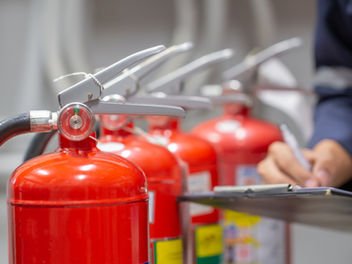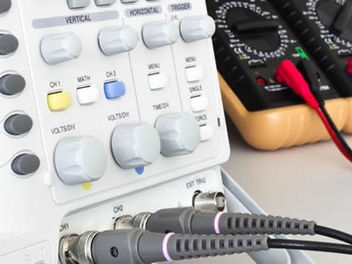Common Electrical Safety Risks & How to Avoid Them
- Guy hudson
- Oct 10, 2023
- 4 min read
Electricity is an essential part of our daily lives, powering our homes, offices, and schools. While it brings convenience, it also comes with inherent risks. Being aware of these dangers and taking proactive measures is vital for ensuring the safety of ourselves, our families, and our properties. This article explores the common electrical safety risks that lurk in our homes and workplaces, providing insights into their potential consequences and, more importantly, how to mitigate these risks effectively.
The Importance of Electrical Safety Awareness
Understanding electrical safety is not merely a matter of awareness; it's a fundamental necessity. A lack of knowledge regarding electrical hazards can lead to severe consequences, including injuries, fires, and financial losses. Therefore, promoting electrical safety awareness is the first step towards prevention. By recognising potential dangers and implementing preventive strategies, we can significantly reduce the risks associated with electricity.
Legal and Financial Consequences of Non-compliance
Non-compliance with electrical safety regulations can lead to severe legal and financial repercussions. In case of accidents, individuals and businesses may face legal action, substantial fines, and increased insurance premiums. Furthermore, the emotional toll and financial burden caused by accidents and property damage are immeasurable. Compliance with safety standards and conducting regular risk assessments are indispensable in avoiding these consequences.
At Global Compliance, we understand the gravity of these electrical hazards and offer comprehensive solutions to mitigate these risks effectively.
7 Common Electrical Safety Risks in Homes
Exposed Wires: A Hidden Danger
Exposed electrical wires pose a significant risk, especially in older homes. Worn-out insulation or damaged cords can lead to electric shock or fires. Conducting regular visual inspections, securing wires, and promptly repairing any damaged ones are essential preventive measures.
DIY Electrical Work: A Risky Endeavor
DIY electrical work might seem like a cost-effective solution, but it often leads to faulty wiring and overloads. Hiring a qualified electrician for any electrical work is crucial to ensure safety and compliance with regulations. Saving costs in the short term can result in significant dangers in the long run.
Water and Electricity: A Lethal Combination
Water and electricity don't mix well. Wet hands, appliances, or leaks near electrical outlets can lead to electric shocks. Avoid using electrical devices in damp conditions, invest in waterproof outlets, and educate family members about the dangers of mixing water and electricity.
Outdated Outlets: An Overlooked Hazard
Outdated outlets might lack grounding, increasing the risk of electric shock. Upgrading to modern, grounded outlets is a straightforward yet effective way to enhance electrical safety in homes.
Misuse of Extension Cords: A Common Oversight
Extension cords are meant for temporary use but are often misused as permanent solutions. Overloading extension cords can lead to overheating and fires. Proper use, regular checks, and avoiding daisy-chaining multiple cords can prevent these risks.
Overloaded Circuits: A Silent Threat
Overloading circuits with multiple high-power appliances can cause the circuit to trip or, worse, start a fire. Distributing the load evenly across circuits, avoiding excessive use of power strips, and being mindful of the appliances in use can prevent overloads.
Neglected Appliance Maintenance: A Recipe for Disaster
Regular maintenance of appliances is crucial for electrical safety. Damaged tools, frayed cords, or malfunctioning appliances should be repaired or replaced promptly. Neglecting maintenance can lead to unexpected failures, resulting in accidents or fires.
Potential Injuries and Accidents
Electrical accidents, ranging from mild shocks to fatal injuries, are a prevalent concern. Exposed wires, damaged tools, and overloaded circuits can lead to electric shocks. Such incidents can cause injuries or even prove fatal, especially in homes with children. By understanding the risks associated with these situations, individuals can take preventive measures such as securing wires, using insulated tools and avoiding overloading circuits.
Fire Hazards and Property Damage
Among the most significant threats related to electrical safety are fires caused by electrical faults. Faulty wiring, overloaded circuits, and neglected maintenance of electrical equipment can lead to devastating fires. These fires not only endanger lives but can also result in extensive property damage. Regular inspections, adherence to safety codes, and proper use of electrical appliances are crucial in preventing such catastrophic events.
7 Benefits of Regular Electrical Inspections
Early Hazard Detection: Prevention is Key
Regular electrical inspections enable the early detection of potential hazards before they escalate. Identifying faulty wiring, exposed electrical parts, or overloaded circuits allows for timely repairs, preventing accidents and ensuring safety.
Increased Fire Safety: Proactive Measures
Identifying faulty wiring or overloaded circuits reduces the risk of electrical fires, enhancing overall fire safety in homes and workplaces. Fire prevention starts with proactive electrical inspections.
Improved Energy Efficiency: Saving Energy, Saving Money
Well-maintained electrical systems operate efficiently, reducing energy wastage and lowering utility bills. Regular inspections can identify energy-draining issues and help optimise energy usage.
Enhanced Appliance Lifespan: Value for Money
Properly maintained appliances have a longer lifespan, providing value for money and reducing the frequency of replacements. Regular inspections can detect and rectify issues, ensuring appliances function optimally.
Reduced Repair Costs: Prevention is Cost-Effective
Early detection of electrical issues prevents costly repairs in the future. Regular inspections help identify potential problems, allowing for timely intervention and cost-effective solutions.
Compliance with Regulations: Legal and Safe
Regular inspections ensure compliance with electrical safety regulations, protecting against legal consequences and ensuring peace of mind. Compliance not only ensures safety but also safeguards against legal liabilities.
Peace of Mind: Safety Assured
Knowing that your electrical systems are safe and compliant provides peace of mind for homeowners and businesses alike. Peace of mind is priceless, and regular inspections offer the assurance of a secure environment.
Conclusion
Electrical safety is a shared responsibility that requires awareness, diligence, and proactive measures. Understanding the common electrical hazards and implementing preventive strategies are crucial steps toward ensuring the safety of ourselves and our loved ones. Regular electrical inspections, conducted by professionals, are indispensable in identifying potential risks and maintaining a secure environment.
At Global Compliance, we are committed to enhancing electrical safety through comprehensive inspections and tailored solutions. Our experienced team understands the nuances of electrical hazards and offers expert guidance to mitigate these risks effectively. Don't wait for accidents to happen; be proactive about electrical safety. Reach out to us today at info@global-compliance.co.uk or call 0330 100 5341. Let us be your partner in creating a safe and secure environment for you and your family. Stay informed, stay safe, and let Global Compliance assist you in your journey towards electrical safety.

























Comments